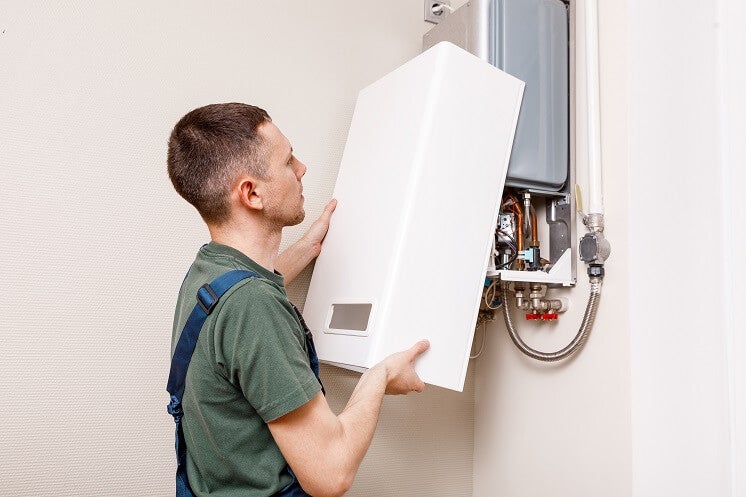Boiler Plus will apply to all installations, whether it is a combi, system or heat-only option. We will look at the primary requirements laid out by the Boiler Plus regulations, along with the central heating solutions to assist the residents and installers meet the criteria.
Boiler Plus and Its Key Requirements
- All gas boilers that have been installed into the current systems in England need to have a minimum of 92% ErP efficiency
- It is mandatory to get time and temperature controls installed simultaneously in every gas and oil boiler, if they are not yet added and functioning.
Replacements of combination (combi) boilers must entail an additional energy efficiency feature fitted simultaneously. These include:
- Flue gas heat recovery
- Weather compensation
- Load compensation
- Smart controls with automation and optimisation functions
- Suppliers and manufacturers are mandated to intimate customers the benefits and costs associated with the added energy-saving measures in order for them to make an informed decision regarding which measures will suit them best.
- The installer is supposed to inform the customer of the benefits and running costs of the boiler and the newly fitted energy-saving measures
- The installer must also ensure the customer understands the way their boiler operates and how to use the added controls
- The installer must also provide the customer with the user manual containing information regarding the boiler benefits, running costs, and any newly fitted energy-saving measures.
Less Carbon Emission and More Renewable Energy Sources
Boiler Plus is a new building regulation that will help you save money on your energy bills. It is designed to ensure that all new and replaced domestic boilers are as energy efficient as possible and encourages the use of renewable energy sources.
The idea behind Boiler Plus is to reduce CO2 emissions from heating and hot water systems by making sure they work efficiently. Hence, they use less gas or electricity over time. If a boiler has been fitted with an Energy Performance Certificate (EPC) label, then it will have been tested against certain criteria, including its efficiency levels, which means it can be used in applications where higher standards of heating are required, such as hospitals or care homes where staff need quick access but also comfort at night time when the temperatures drop outside.
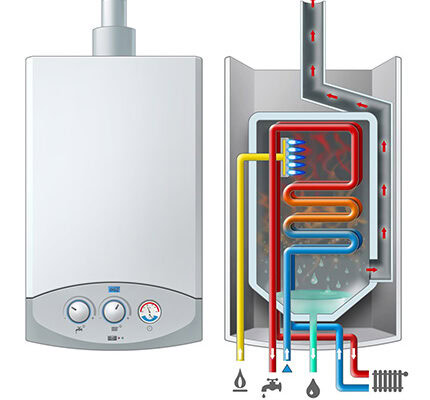
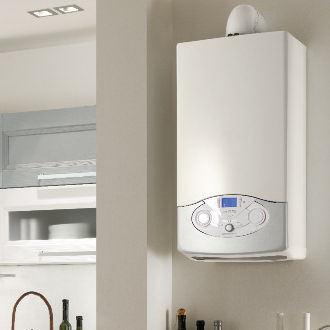
What choices do I have to help me follow the rules for Boiler Plus?
Let’s look at some of the available solutions to assist installers in remaining compliant with the Boiler Plus standards and provide acceptable options to their clients.
Flue Gas Heat Recovery System (FGHRS):
Almost all modern boilers include some form of in-built heat recovery, making condensing boilers far more efficient than older models. An example of a model with integrated flue gas heat recovery is the Ideal Heating Code Combi boiler.
Flue Gas Heat Recovery Systems collect the heat from waste flue gases to pre-heat the cold water getting into the boiler. This reduces the amount of energy needed to heat the water to the appropriate temperature. In most circumstances, these systems can improve the efficiency of condensing boilers by supplying the same amount of heat while using up to 4% less gas.
Weather Compensation:
Weather compensation works with the boiler intelligently to lower water temperatures based on outside conditions, increasing efficiency without sacrificing user comfort. All ideal residential boilers come with external weather compensation equipment as an option.
This intelligent functionality enables boilers to keep a constant internal temperature by altering boiler output to account for weather changes. Weather compensators can be as simple as an external sensor that returns weather data to the boiler.
Load Compensation:
Load compensation is a standard feature in most of the smart controls and thermostats that can be utilised to meet Boiler Plus requirements. Ideal thermostats, such as the wireless Halo, can assist boilers in reaching and maintaining the user’s chosen temperature while using minimal energy.
These devices work by sensing the difference between the interior and desired temperatures and modulating the boiler to consume just the amount of fuel required to close the gap.
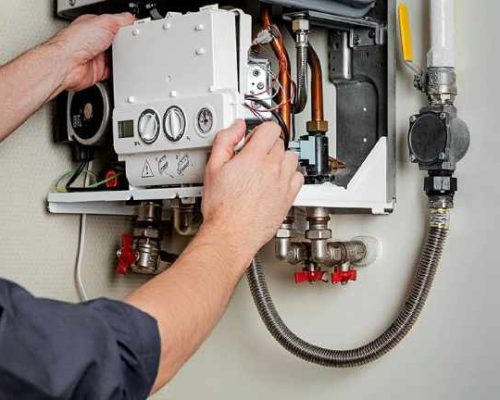
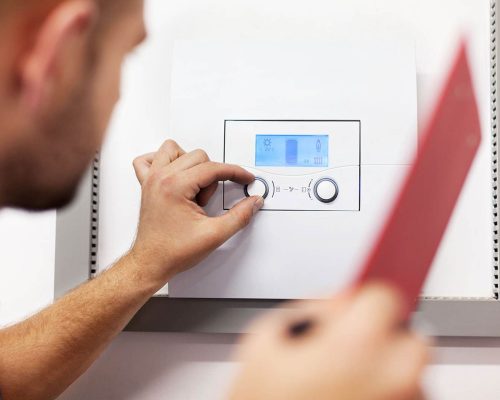
Smart Controls with Optimisation and Automation:
For more control over the central heating system, smart thermostats, such as the Halo Wi-Fi, allow consumers to manage their home temperature via a smartphone or tablet remotely.
Automation is a feature that allows the device to adjust the heating system’s output automatically in response to a pre-set demand (for example, scheduling with temperature control) or occupancy detection.
Optimisation means that the gadget calculates how long the property takes to reach the desired degree of comfort and calculates the time of the system’s operation to minimise the effort required.
Conclusion
The new Boiler Plus regulations have been laid out to give you more control over your home. The regulations will require all boilers installed after 6th April 2018 to be fitted with a control mechanism that enables the user to switch the heating on and off remotely. They also cover renewable energy sources such as solar panels or wind turbines, which can help reduce emissions from household boilers. We hope these changes will encourage more households across the UK to invest in renewable energy technologies, which is only possible if we all work together towards greater environmental awareness!

